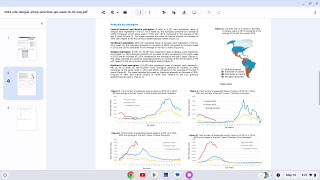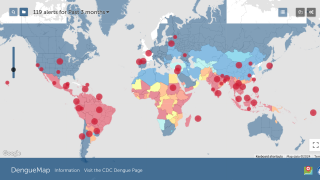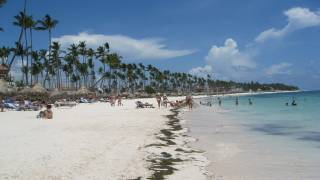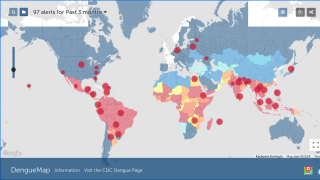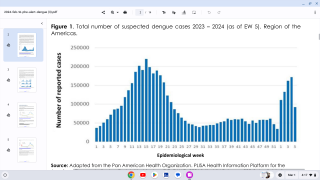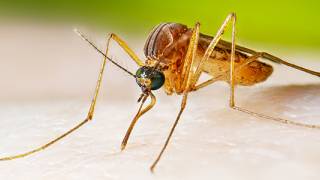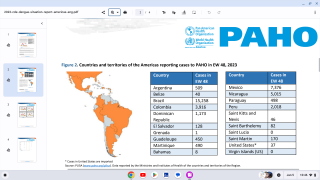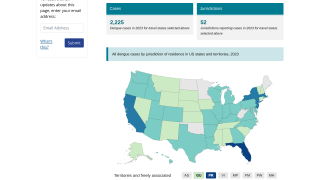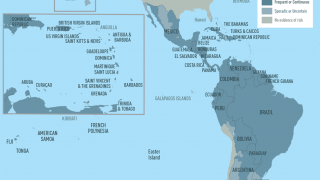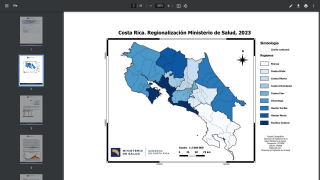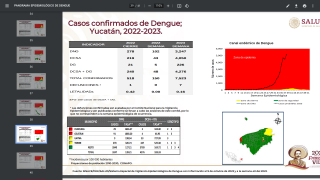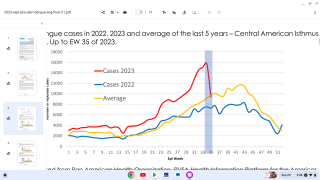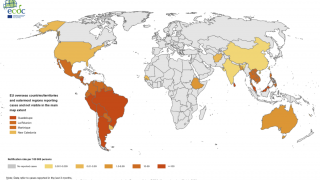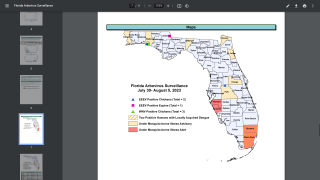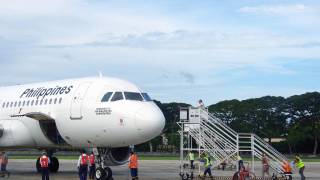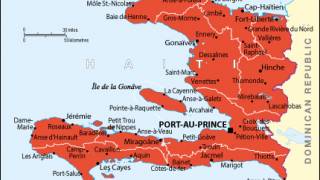Central America’s Dengue Outbreak Exceeding Endemic Thresholds
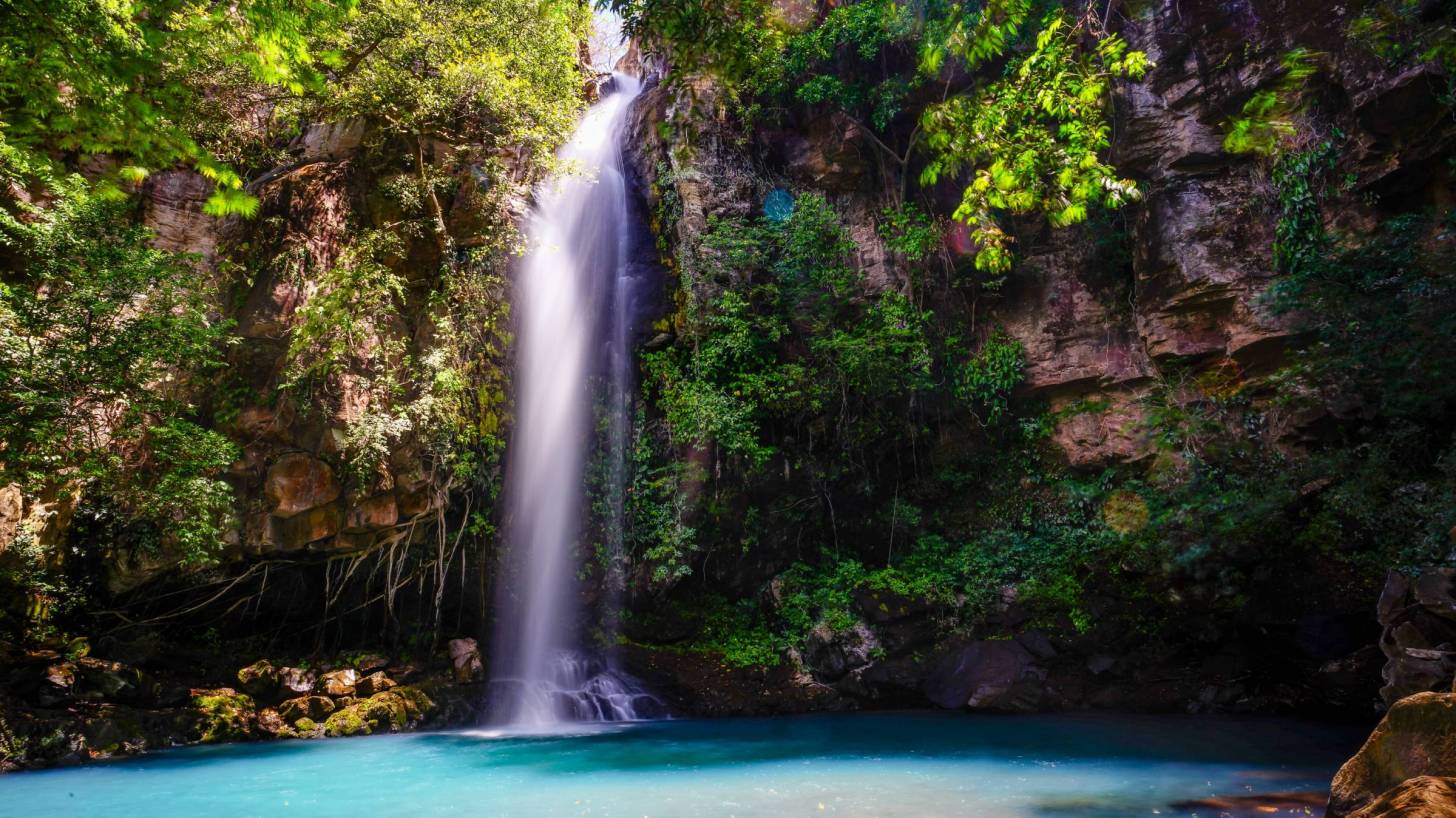
The Dengue virus in the Americas has quickly evolved from a low-level endemic to a pandemic situation now observed in almost all Central American countries.
In three countries, the number of reported Dengue cases has already equaled or is now above the total number of cases in the previous 5 years.
As of the epidemiological week (EW) 45 (November 10, 2019), 349,076 people in Costa Rica, El Salvador, Guatemala, Honduras, and Nicaragua have reported dengue in 2019.
These countries have already declared Epidemiological Alerts: Honduras (14 June 2019), Guatemala (29 July 2019) and Nicaragua (31 July 2019).
Additionally, fatal Severe Dengue cases have increased, with children being the demographic most at-risk, reported the International Federation of Red Cross and Red Crescent Societies (IFRC) on November 25, 2019.
Considering that dengue cases are typically underreported by a 14 to 28-time ratio, the number of people who have been infected with dengue is likely much higher, says the IFRC.
From a regional point of view, the Dengue risk is increasing since Central America's rainy season is continuing. The extra stagnant water creates more breeding sites for the Aedes aegypti mosquito, which is Dengue’s leading vector.
Honduras
- Honduras is experiencing the worst dengue outbreak in its history, with 157 deaths and a case fatality rate (CFR) of 0.20%.
- As of EW 45, Honduras has reported 96,779 cases of dengue. The increase in the number of dengue cases started in April 2019.
- Nearly 25% of the cases reported were classified as severe dengue.
- The departments of Cortes, Santa Barbara, and Comayagua have reported the most cases.
Guatemala
- According to the latest information available, a total of 54 deaths out of 44,616 cases (of which 85 were classified as severe dengue) have been reported as of EW 45 (4 to 10 November 2019).
- Among the deaths reported, over half were children below 15 years of age, of whom the majority were children aged from 5 to 9.
- According to the Guatemalan Ministry of Health, the most affected departments are Huehuetenango, Quetzaltenango, Petén, Suroriente, Guatemala, and Las Verapaces.
- Beyond the dengue outbreak, there have also been newly reported cases of malaria in the operational areas. The current dengue operation is contributing to respond to malaria vector control as well.
Nicaragua
- In Nicaragua, 172,095 dengue cases have been reported as of EW 46, including 26 deaths due to severe dengue.
- Most affected departments are Leon, Carazo, Esteli, Chinandega, Masaya and Managua.
- The outbreak is primarily affecting children under 14 years of age.
- During the last 7 weeks, there has been an increase of over 32% in the number of Dengue cases reported.
Currently, the 4 dengue serotypes (DENV 1, DENV 2, DENV 3 and DENV 4) circulate simultaneously in Central America, which increases the risk of severe cases and the consequent burden of care for health services.
For this reason, a person can be infected with a dengue virus as many as four times in his or her lifetime.
Dengue serotype 2 is one of the deadliest and is the one that is currently affecting children and adolescents in the region.
There is no specific treatment to cure dengue, but the early identification of early warning signs and symptoms and early supportive care can save lives, says the US Centers for Disease Control and Prevention (CDC).
A dengue vaccine is available for use in some parts of the world.
In May 2019, Dengvaxia was approved by the U.S. Food and Drug Administration in the United States for use in children 9-16 years old living in an area where dengue is common (the US territories of American Samoa, Puerto Rico and the US Virgin Islands), with laboratory-confirmed prior dengue virus infection.
Dengvaxia’s availability in the US territories is pending, said the CDC on September 23, 2019.
Recent Dengue news
- Identical viral sequences confirmed in dengue transmission cases Madrid Spain.
- Wolbachia infected mosquitoes reduced dengue by 76% in Indonesia and Brazil.
- Takeda tetravalent dengue fever vaccine TAK-003 reported very protective in phase 3 study.
The International Committee of the Red Cross has permanent missions in Guatemala, Honduras, El Salvador, and Nicaragua coordinated by the ICRC Regional Delegation based in Mexico City, Mexico.
On November 1, 2019, the Red Cross announced an effort to raise $2.9 million to fund Dengue vaccination efforts in Central American countries through September 2020.
"The size of these outbreaks is unprecedented across Central America," said Dr. Maria Frana Tallarico, head of health of IFRC's regional office for the Americas, in a statement.
The National Societies in Central America have supported community health outreach activities and used their unique access to cover gaps in service provision, including support for environmental approaches to health.
Each National Society has a unique plan of action aimed at one common goal, and the indicators presented in the Appeal’s Emergency Plan of Action are meant to be the best reflection of their collective efforts to achieve the main goal of this operation: the reduction of risk, morbidity, and mortality related to the current dengue outbreak in Costa Rica, El Salvador, Guatemala, Honduras, and Nicaragua.
The Societies have worked in the past to overcome the issues outlined above and are well equipped with the skills needed to respond.
Dengue Virus news published by Vax Before Travel
Our Trust Standards: Medical Advisory Committee

